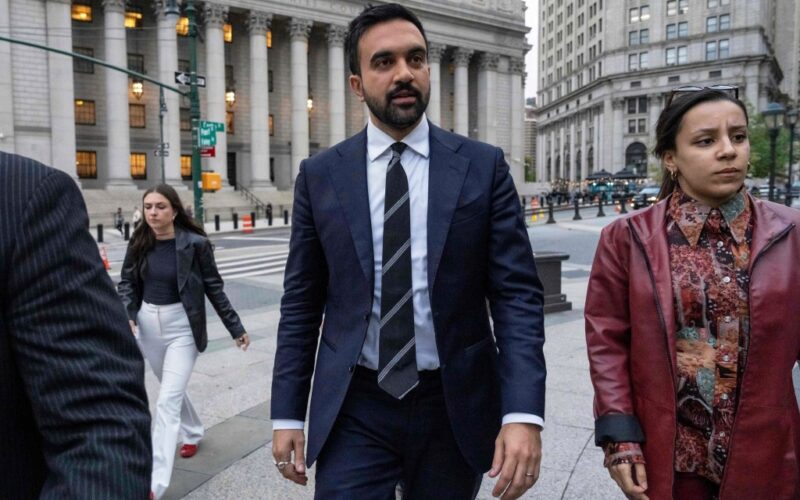Recent coverage of mayoral candidate Zohran Mamdani’s support for decriminalizing consensual adult sex work misses the mark by claiming it would embolden traffickers and abusers. Concerns around exploitation are valid, but the conclusions are wrong.
Evidence from around the world demonstrates that criminalization, not decriminalization, makes people vulnerable to exploitation and traps the most marginalized in cycles of violence, poverty, and fear.
The issue is not whether exploitation exists in the sex trade. It does, as it does in agriculture, domestic work, and many other industries. The question is how best to protect people from it. Criminalization, even when it claims to target only buyers, drives sex work underground. It forces people who sell sex to work in isolation, avoid police, and rely on unsafe networks because they cannot report abuse or organize for their own protection.
Full decriminalization means removing criminal penalties for consensual adult sex work while still enforcing all laws against trafficking, assault, and child exploitation. It does not mean that anything goes. It means that sex workers can access labor protections, health services, and justice without fear of arrest.
The public health evidence is clear. A 2018 Johns Hopkins Bloomberg School of Public Health meta-analysis, which reviewed more than 130 studies over 30 years, found that repressive policing practices around sex work were linked to higher risks of sexual and physical violence, and increased HIV and STI transmission. Policing sex work disrupted sex workers’ safety networks and risk-reduction strategies.
The study’s conclusion was unambiguous: full decriminalization supports community health and safety. Amnesty International, Human Rights Watch, UNAIDS, the Global Alliance Against Traffic in Women, the UN Special Rapporteur on the Right to Health, and the World Health Organization, among others, recommend decriminalization to address trafficking worldwide.
New Zealand, which decriminalized sex work in 2003 demonstrates this. Two decades of research, including by the New Zealand Ministry of Justice, found no evidence decriminalization expanded the sex trade or increased underage involvement. What it did do is improve working conditions, allow sex workers to refuse clients, and report violence without fear. That is not the story of a booming exploitation market. It is the story of public policy reducing the potential for disease and violence.
By contrast, laws criminalizing clients, like the Equality Model or Nordic Model, enacted in Sweden, Norway, and Canada, have repeatedly failed to deliver on their promises of reducing “demand” for sex work or combatting trafficking. When buyers fear arrest, they may rush negotiations, and sex workers are compelled to accept clients who refuse to give their legal names, exhibit nervous behavior, or insist on a remote location.
Studies and government reviews from those countries reveal that after the laws were implemented, sex workers experienced increased stigmatization and abuse and were made more vulnerable to potentially exploitative individuals.
Here in New York, passing Cecilia’s Act would move us toward real safety. This bill, the one Mamdani supports, would remove criminal penalties for consensual adult sex work and seal old prostitution-related convictions, allowing people to rebuild their lives. It keeps every law against trafficking and coercion intact but ends the unfair punishment of people just trying to get by, especially trans women, immigrants, and people of color who are the most targeted under current laws.
One of the troubling aspects of the anti-decriminalization argument is that it speaks about sex workers but rarely with them. Sex workers have long called for full decriminalization, not because they condone exploitation or glamorize sex work, but because they live with the harms of criminalization. Arrests, housing discrimination, police harassment, and deportation are regular realities and all make people more vulnerable to trafficking.
Supporting people’s ability to meet their needs, including adequate housing and employment, instead of arrest, is how to reduce exploitation. Criminal laws do not solve inequality, but they can exacerbate it. Decriminalization gives people in the sex trade access to the same rights and protections as other workers. This is not a gift to traffickers. It is a significant step towards justice, health, and safety.
New York has the opportunity to improve conditions for its most marginalized by replacing fear with facts and punishment with protection. Decriminalizing sex work is not about profits. It is harm reduction, public health, and human rights, and is just the kind of progress this city should champion.
Broudo is legal director at Decriminalize Sex Work and a former criminal defense attorney representing survivors of trafficking and sex workers.








